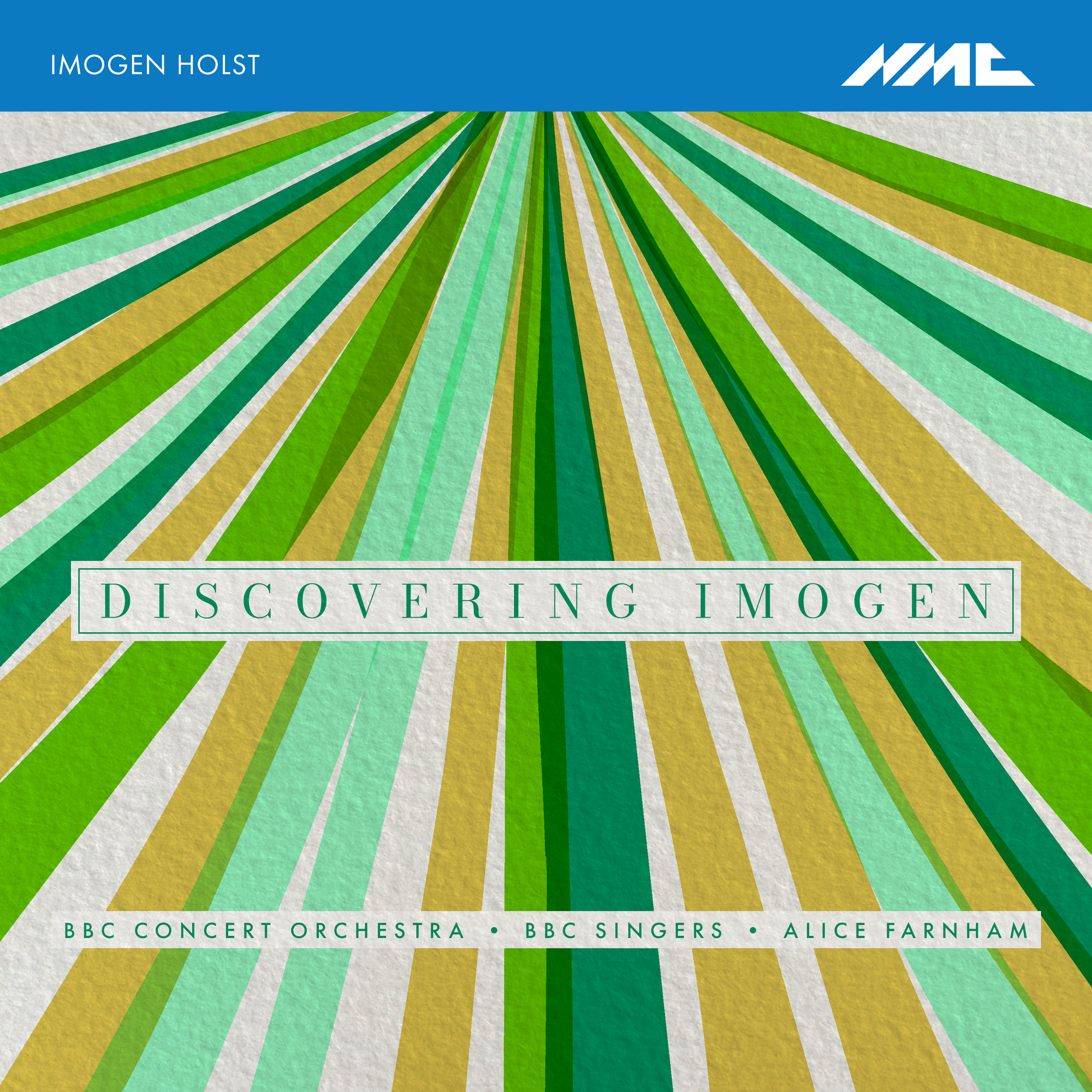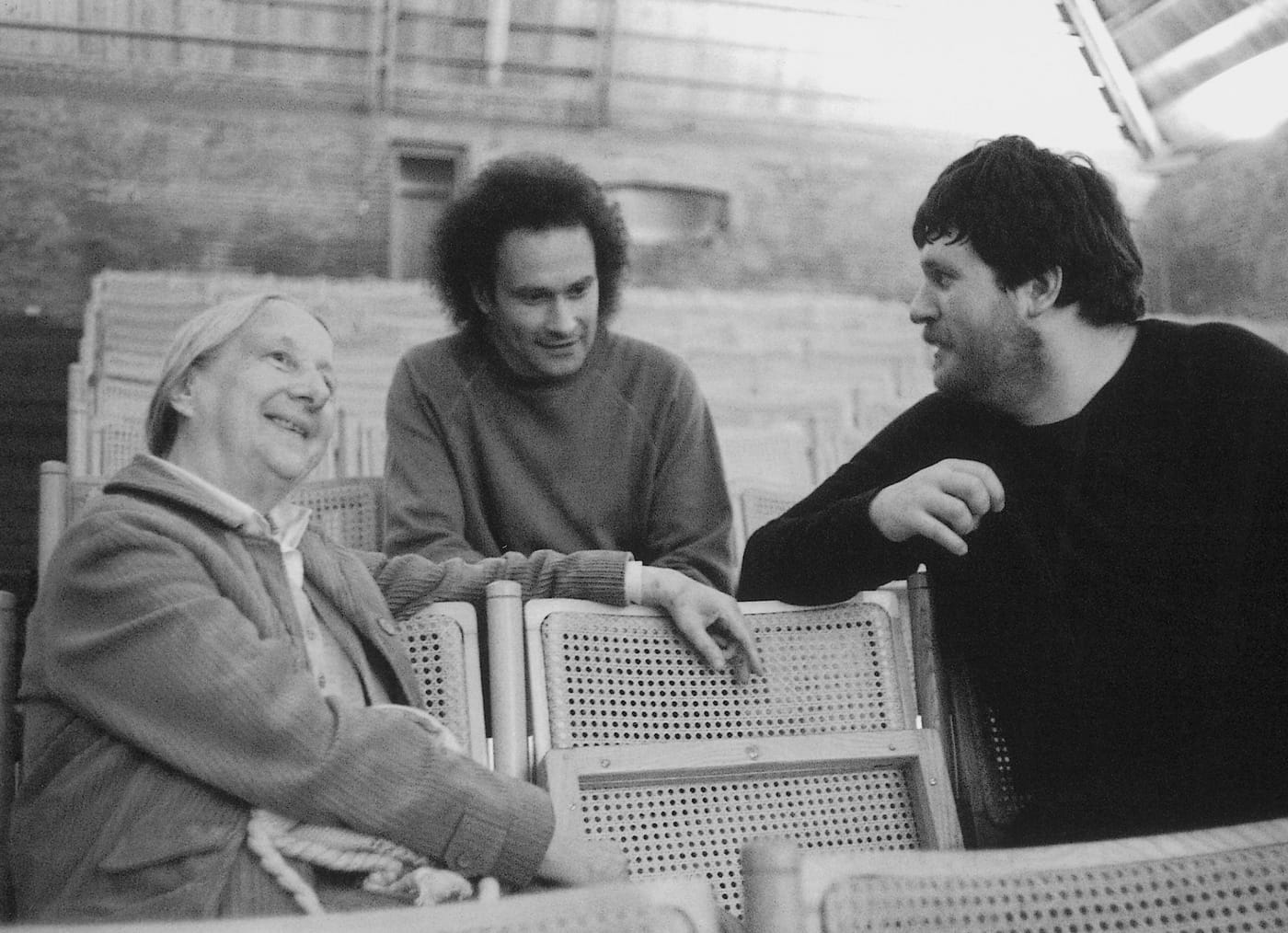
Released on September 6, NMC Recordings album of music by Imogen Holst also celebrates 35 years of this wonderful label, The BBC Concert Orchestra and BBC Singers excel throughout under Alice Farnham.
Dating from 1929, Imogen Holst’s overture Persephone was only performed once, and that in rehearsal (the Royal College orchestra under Malcolm Sargent). It sits firmly in teh shadow of Ravel’s Daphnis, but with harmonic twists that take the music back towards this Scepter’d Isle. There’s even something of a climactic “sunrise”. Great that this receives such a fervent performance by the BBC Concert Orchestra and Farnham:
·
Written 1962, the Variations on “Loth to depart” take a harmonisation of this 16th-Century tune by Giles Farnaby from the Fitzwlliam Virginal Book and run with it. The scoring for string orchestra make this sound perfectly 20th-Century English, and also emphasises the piece’s inherent grandeur in its first full statement. The variations go on to explore a 1609 version of the tune in canon (variation III) and a Moto Perpetuo that represents “ceaseless activity of teaching staff” (which seems to remain true to this day). There’s also the use of a string quartet against ripieno strings. Here’s the harpsichord piece, followed by the second of Imogen Holst’s variations, which features that quartet:
The seventh and final variation finds the string quartet once again active but melding, now, into the collective. And just listen, too, to how perfectly judged the quiet ending is, both by Imogen Holst and by the BBC players:
The short Allegro assai is English music to its core. It was intended as part of a Suite in F (the remaining movements did not, sadly, come to fruition), The performance is slightly scary here, but good to har this jaunty piece:
… On Westhall Hill (1936) prolongs this impression, now with foregrounded woodwind solos. The material is folk music, although the exact names are not identified. The title refers to the home of a husband and wife that formed the headquarters of the Westhall Singers and Players.
The Suite for Strings dates from 1943 (its first performance was at Wigmore Hall) and comprised four movements, The opening “Prelude” is of some depth and import:
I love the way the robust fugue contrasts with the far more gentle Intermezzo, a string song of great warmth (including som foregrounded solo passages of great effectiveness). Farnham’s performance succeeds because she senses the way the music breathes: one can almost hear in- and out-beats:
It is very English to end with a Jig (and not a gigue!). This one is nicely angular, resulting in a thicket of string textures I for one did not expect. There is quite a tang to this movement:

Moving to the choral numbers of the disc, the first is a prime contender for the Proms. Imogen Holst’s What Man Is He? is for chorus (BBC Singers) and Orchestra, Written around 1940, the text comes from the Book of Wisdom and was actually set twice by the composer (also in the Five Songs for unaccompanied female voice of 1944). Here’s the stirring setting on this disc:
The other is the Festival Anthem (1946) hard here with its accompaniment arranged for strings by Colin Matthews. The text is Psalm 104 (as filtered through teh Book of Common Prayer). The setting veers fom the monumental to the deft to the devout, and the BBC Singers excels. Mathews’ string versions the original (piano/organ) is most effective. Its a long setting, but it is not a semiquaver over-long ….
The Festival Anthem and What Man is He? both receive they first ver performances here.
Triggered by my comment on What Man is He?I did have a look at the BBC Proms Archive and can only find two pieces be Imogen Holst performed in its long history! Both were in 2013, the Phantasy Quartet and the other Hallo, my fancy, whither will you go?, this last also with the BBC Singers . Both were Proms Chamber Concerts. Can that really be true? It needs rectifying, if so. This disc, a least, goes a long way in reminding us of Imogen Holst’s importance to British music
The NMC disc is available at Amazon here. Soundcloud lovers can find a sample here:: https://on.soundcloud.com/GnaDRmkKDTj9UJ567
It is worthwhile noting that Imogen Holst was pivotal in the founding of NMC Recordings with composer Colin Matthews. Holst’s establishment of the Holst Foundation not long before she died in 1984, ultimately went on to ensure that NMC was set-up to continue the Foundation’s support of the work of living composers.
Colin Matthews, Composer and Founder of NMC Recordings said:
It could hardly be more appropriate for this major release of Imogen Holst’s music to be part of NMC’s catalogue, as without Imogen (known to everyone as Imo) having the foresight to set up the Holst Foundation not long before she died in 1984 it is very unlikely that NMC would exist at all. The Foundation was always intended to support the work of living composers, and we had discussed in detail the possibility of setting up a record label which would do exactly that.
Imo would have been delighted by NMC’s achievement; but if you tried to ask her about her own music, she was unfailingly evasive. Although I knew she had composed throughout her life it was not until after her death that we discovered quite how extensive her catalogue is: well over 200 works – many of them arrangements, or on a small scale, but many substantial pieces as well. And a good proportion of these larger works received only one performance or remained unperformed, as if simply set aside while she was preoccupied with her many teaching roles (as well as promoting the music of her father). From 1952 until 1964 she worked as an assistant to Britten, but she continued to compose both then and right up until 1984. Her most significant works date from the 1930s and 1940s, which included her notable residencies at Dartington College.
It has been a great pleasure to pay tribute to Imo with this recording – something which might have surprised her but surely also pleased her greatly. It is one of the last recordings to be made in BBC’s Maida Vale Studio 1, with the BBC Concert Orchestra on outstanding form, and with the impeccable BBC Singers, under the direction of Alice Farnham.’





.jpg?w=160&resize=160,160&ssl=1)



